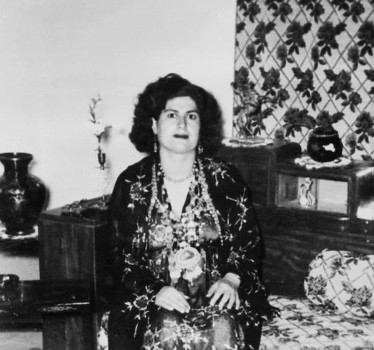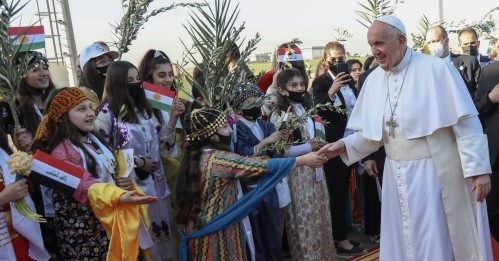In a farewell interview on September 27, Dutch Colonel Walter van Bijlevelt told Kurdistan Chronicle that the Ministry of Peshmerga Affairs (MoPA) aims to increase female participation in the MoPA from 1% to 6%.
“I can live with that aim, because that means that they have to increase at least from 1% to 6%, which is an enormous amount. So if they managed that I would be very happy and impressed.”
“I’m convinced that 50% of all the intellect and knowledge in the Kurdistan Region is kept by women. Every organization should realize that women have a lot of potential, and you have to use that in a proper way. Unfortunately, the MoPA has only 1% female participation. The Ministry realizes this and is willing to work to increase the number of female peshmerga.”
The Netherlands, Italy, France, Germany, the UK, and the United States are part of the Multinational Advisory Group (MNAG), which supports the unification of the partisan Patriotic Union of Kurdistan’s ‘70s’ peshmerga units and the Kurdistan Democratic Party’s ‘80s’ units under the command of the MoPA.
One key focus of the Dutch military advisor is gender equality in line with the aims of the Consulate-General of the Netherlands in Erbil, as stated in their four-year plan. “In general, people are very supportive of the idea of male-female equality and of more women participation within the MOPA.”
The Kurdistan Regional Government’s High Council for Women and Development (HCWD) announced on X that it had discussed boosting female participation with the MOPA on July 19, led by HCWD Secretary-General Khanzad Ahmad.
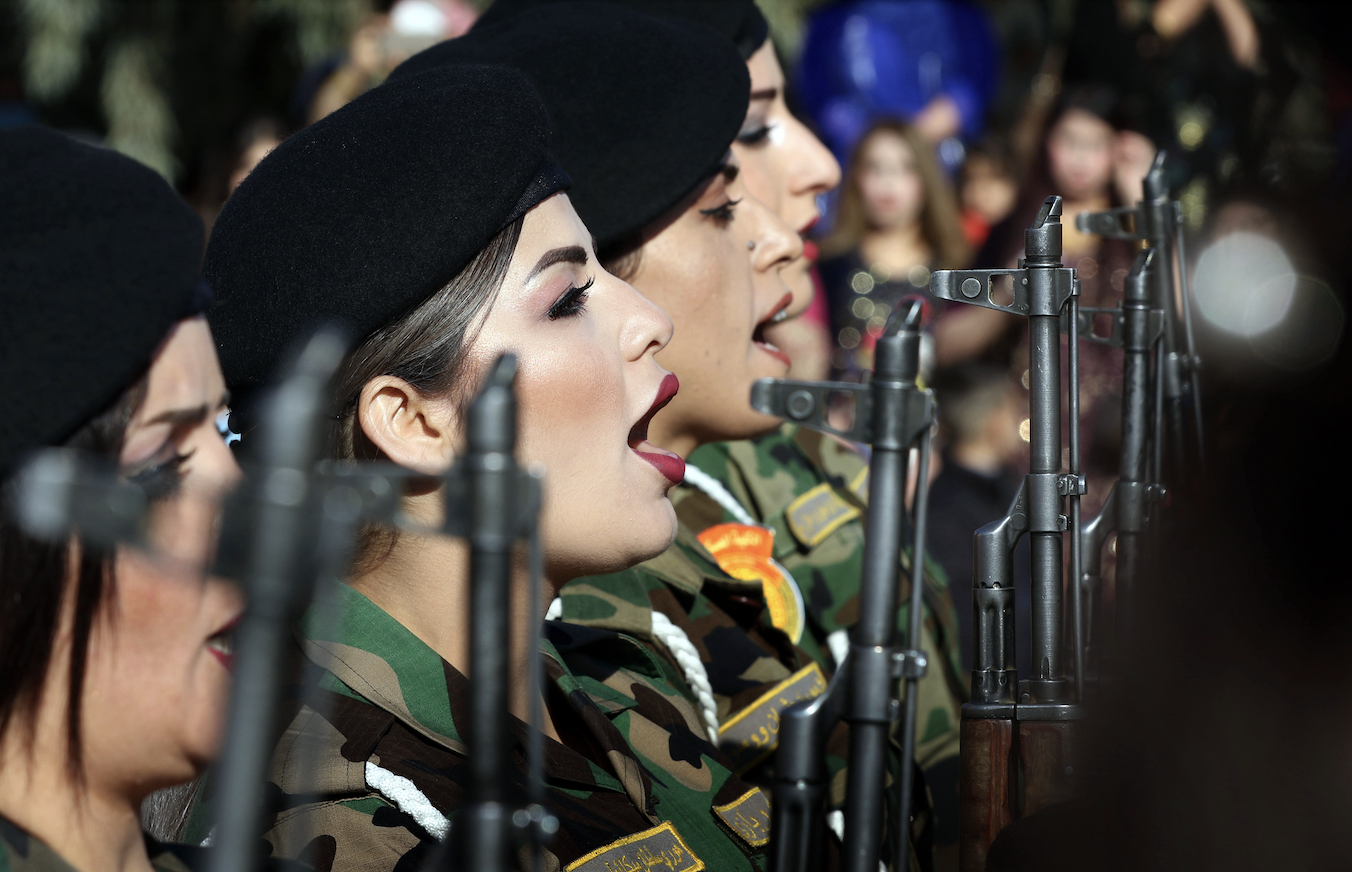
Promoting gender equality
“Almost everyone is supportive of gender equality, but in reality women still make up just 1% of the peshmerga. Fortunately, there is a program to increase that number to 6%. The plan is not bad but the tempo is, I think, too slow,” said van Bijlevelt.
“My job as a military advisor and as part of the MNAG is to look for opportunities to speed it up a little bit. By law there is no difference between men and women within the MoPA, but in reality we all know we are not there yet. My experience with female peshmerga is that they are mostly very motivated to serve their country, better educated, and very disciplined. I even spoke to a young and inspiring female officer who graduated at the top of her class at the academy.”
Van Bijlevelt also said that female recruitment is challenging because the 70s and 80s are independently adding personnel to the MoPA. This uncoordinated influx makes it difficult to implement a structured recruitment program, especially for women. The activities of the MoPA’s four recruitment centers are still on hold as long as the ministry does not know what troops the 70s and 80s will deliver to the MoPA. Additionally, it faces budgetary challenges because many peshmerga need to retire to make space for the new generation.
Van Bijlevelt mentioned that the Netherlands’ Consulate-General has begun efforts to support the creation of a female formation in the MoPA and to integrate a female unit from the 70s into this unit. The history of the Kurdistan Region demonstrates that female participation in combat has remained high since the beginning of the 20th century. A good example is the so-called “Sun Battalion,” a 100%-female fighting unit lead by Khatoon Khider during the war against ISIS. “So, don’t tell me women should not be in a fighting unit,” van Bijlevelt said.
He said the goal is to make a regiment where there would be space for women who want to serve in a female unit. “We had to start somewhere, and so we started with this unit located in Sulaymaniyah. Of course, we also created the possibility for women in units in Duhok and Erbil to join the same regiment. So we end up with units in Erbil, in Sulaymaniyah, and in Duhok. We started with a battalion staff with enough positions for women all over the Kurdistan Region.”
He underlined that the idea is to allow women to work in female regiments or choose from various other jobs within the MoPA. In this way, they can choose a safe, all-women unit or pursue other roles. The female regiment serves as a framework to build an operational force of peshmerga women.
He added that the gender equality project is part of the 28 reform projects being undertaken by the MoPA and sponsored by the MNAG.
“It’s project number 12. There is a project plan that is not yet signed off on, but basically the ideas are okay. I’m very curious about what will happen then, but unfortunately my tour is ending.”
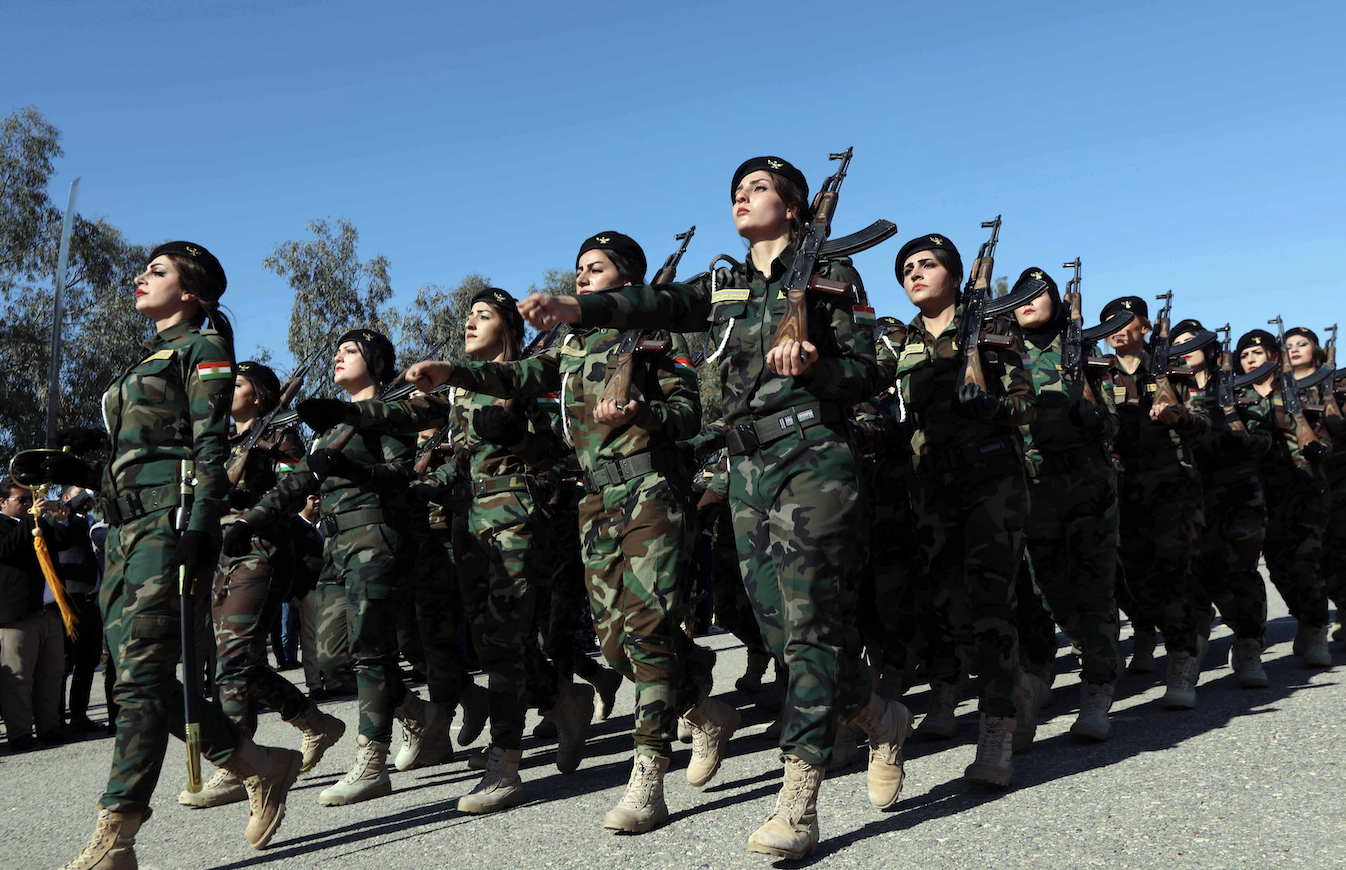
Dutch focus on Baghdad
Last year, the Dutch military deployed approximately 250 soldiers to Baghdad for the NATO mission and is set to take command in May. Meanwhile, 120 Dutch troops previously in Erbil have left, leaving only five Dutch soldiers in the Kurdistan Region.
“Most of the participation in Iraq from the Netherlands is now focused on Baghdad, so we do not have many trainers from the Netherlands here,” van Bijlevelt said. “But sometimes we ask trainers from the Netherlands to come over and conduct training sessions.”
He added that last September a training session on project management was held in order to help the MoPA staff with decision-making processes.
The Wall Street Journal reported on September 20 that the United States and Iraq have reached an agreement for the withdrawal of U.S. and other foreign troops from Iraq by the end of 2026, although a small number of U.S. troops will stay, most likely in the Kurdistan Region.
“We have a new situation in the upcoming few years. We now have six contributing countries in the Kurdistan Region: Italy, France, Germany, the UK, the Netherlands, and the United States, as well as a seventh entity within the MNAG, which is Operation Inherent Resolve, or the U.S.-led coalition.”
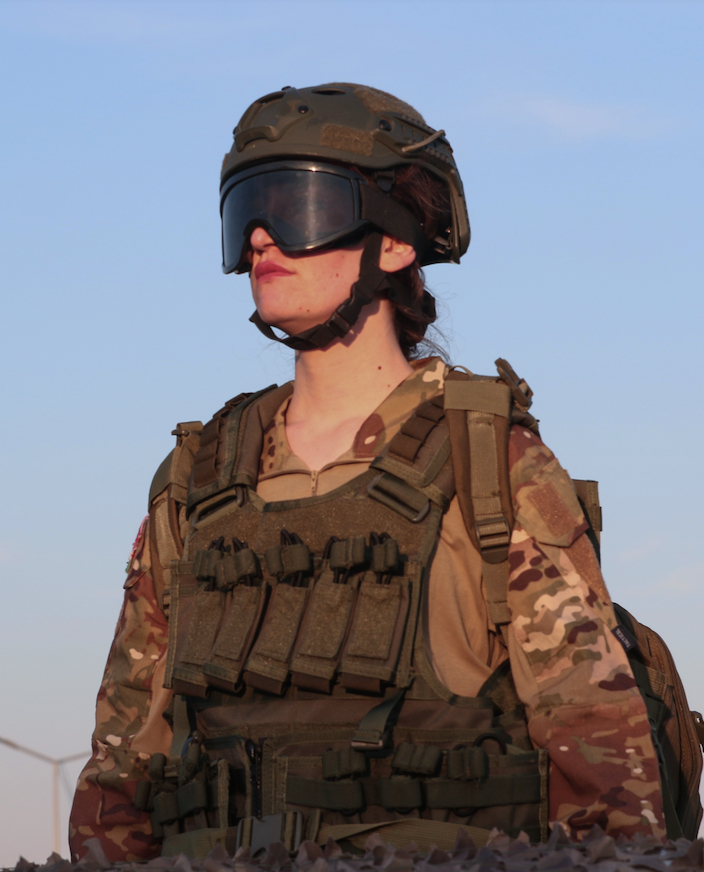
Bilateral agreements
Van Bijlevelt emphasized that this anti-ISIS coalition will gradually be phased out and replaced by bilateral agreements between countries. “That means that, if the Netherlands thinks they should stay in the region, that should be because of a bilateral agreement with Baghdad.”
“Every country now is thinking about what would be the best agreement to make with Baghdad,” he said. “The new reality demands that there still be some kind of coordination between countries; otherwise, we will all try to do the same thing, or we will have gaps in our information. So that means the MNAG remains necessary as a coordinating group.”
“If you ask me, my advice to the Netherlands’ government would be to stay in the Kurdistan Region because of the strategic importance in the Middle East and the good relationship that we have built with the Kurds over the last five decades.”
He added that, during his six-month tenure, he saw many people who were willing to contribute to peshmerga reform. “Although the tempo is slower than what we would like to see, I’m convinced that we are working in the right direction together with our Kurdish comrades.”
However, he said there’s a lot of mistrust among several groups within the Kurdistan Region, and within the MoPA. “When politics interferes in an army, it’s never a good thing. I hope that the people within MoPA and the 70s and 80s try to keep politics out of the army.”
Van Bijlevelt said that he especially enjoyed Kurdish hospitality and friendship with locals. “In a way, the Kurdistan Region is under my skin, meaning part of my heart is now Kurdish, and I consider that a compliment. I will really miss the wonderful people, their hospitality, the region, and the traditions and culture of the Kurdish people. These are the things to remember, rather than focusing on politics. Normal people are great, but politicians often have their own agendas, which can be difficult to handle for us as military advisors.”
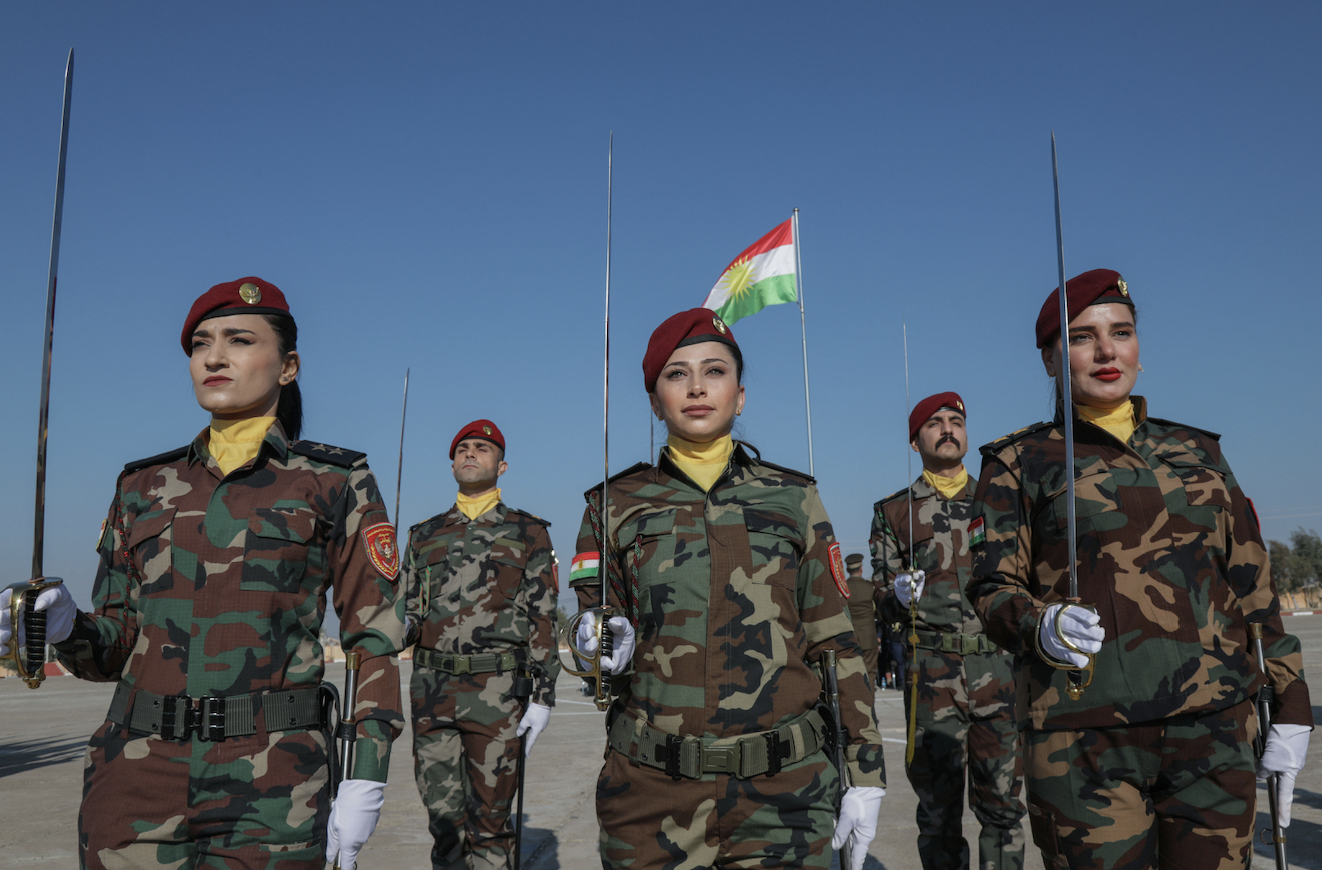
Wladimir van Wilgenburg is a seasoned reporter and analyst who specializes in Kurdish affairs, and holds a Master’s degree in Kurdish studies from Exeter University.
